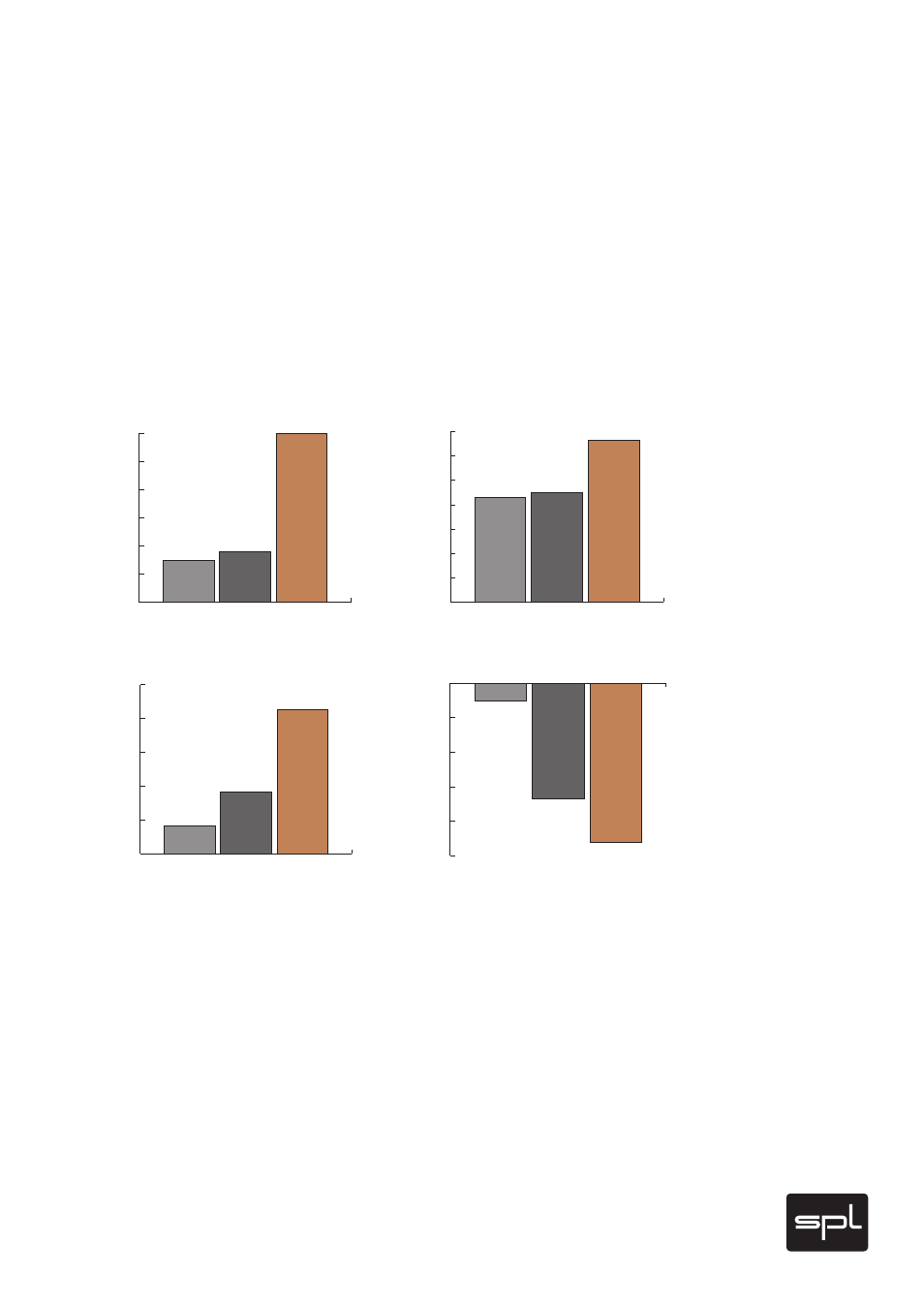Technical aspects, 120 volt technology - diagrams – SPL PASSEQ Passive Mastering Equalizer for Pro Audio Applications (All Black) User Manual
Page 9

5
Technical Aspects
120 Volt Technology - Diagrams
These diagrams clearly show the advantages of our 120-volt technology in comparison to
other circuits with a lower operating voltage. The direct relation between operating level
and maximum level is fundamental for the classification: the higher the operating level,
the higher the maximum level a circuit can handle. And since virtually all essential acous-
tic and musical parameters depend on this relation, a higher operating voltage also
has a positive impact on the dynamic range, distortion limit and signal-to-noise ratio. The
result is a clearly more laid-back and natural sound with less unpleasant coloring.
Do bear in mind that dB scales do not represent linear but rather exponential increases. A
3 dB increase corresponds to doubling the acoustic power, +6 dB correspond to twice the
sound pressure level, and +10 dB correspond to twice the perceived loudness.
When it comes to volume, the 120-volt technology exhibits a performance that is twice
that of common components and circuits, in regard to maximum level and dynamic range,
with values that are approximately 10 dB higher. THD measurements of the SPL op-amps
show a difference of more than 3 dB compared to the OPA134 at 36 V — in terms of sound
pressure level, that corresponds to an improvement of more than 50%.
The operating level most commonly used for audio equipment is 30 volts.
120
125
130
135
140
145
dBu
Dynamic Range
OPA
134@30
V
OPA
134@36
V
SPL-OP@
120
V
124,2
129,1
141,4
0
5
10
15
20
25
30
35
dBu
OPA
134@30
V
OPA
134@36
V
SPL-OP
@
120
V
21,5
22,5
33,2
Maximum Levels
0
20
40
60
80
100
120
Volt
+/- 15
Volt
+/- 18
Volt
+/- 60
Volt
30 V
36 V
120 V
Operational Voltages
-115
-113
-111
-109
-107
-105
dBu
TL
071@30
V
OPA
134@36
V
SPL-OP@
120
V
106
111,7
114,2
THD&N
